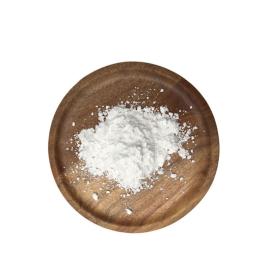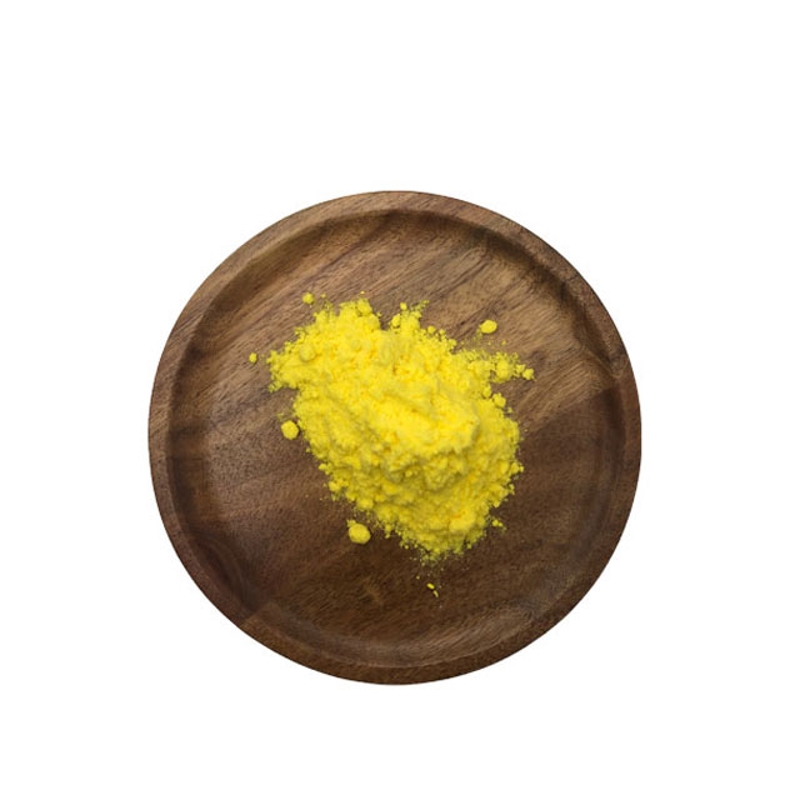-
Categories
-
Pharmaceutical Intermediates
-
Active Pharmaceutical Ingredients
-
Food Additives
- Industrial Coatings
- Agrochemicals
- Dyes and Pigments
- Surfactant
- Flavors and Fragrances
- Chemical Reagents
- Catalyst and Auxiliary
- Natural Products
- Inorganic Chemistry
-
Organic Chemistry
-
Biochemical Engineering
- Analytical Chemistry
- Cosmetic Ingredient
-
Pharmaceutical Intermediates
Promotion
ECHEMI Mall
Wholesale
Weekly Price
Exhibition
News
-
Trade Service
Therapeutic blockade of the iNature programmed cell death protein-1 (PD-1) immune checkpoint pathway leads to significant reactivation of T cell-mediated antitumor immunity and is a promising clinical anticancer treatment modality for several tumor types , but the durable response rate remains relatively low (15-20%) in the majority of hepatocellular carcinoma (HCC) patients for unknown reasons
.
Evidence suggests that the interferon signaling pathway plays a critical role in regulating the efficacy and sensitivity of anti-PD-1 therapy in multiple tumor types, but the mechanism remains unclear
.
On January 6, 2022, Yang Yong of China Pharmaceutical University and Wang Zhuo of Nanjing University of Traditional Chinese Medicine published a joint communication online in Hepatology (IF=17) entitled "Hepatic IRF8 expression suppresses hepatocellular carcinoma progression and enhances the response to anti-PD- 1 therapy”, which used a Kaplan-Meier survival analysis based on the HCC database and found that, among all nine members of IRFs that regulate interferon signaling, interferon regulatory factor (IRF8) expression in HCC was associated with poorer outcomes in HCC patients.
Prognosis related
.
Furthermore, gene enrichment analysis identified IFN-gama and PD-1 signaling signatures as the most repressed pathways in IRF8-low HCC patients
.
Conversely, overexpression of IRF8 in HCC cells significantly enhanced antitumor effects in immunocompetent mice, modulating tumor-associated macrophage (TAM) infiltration and T cell depletion in the tumor microenvironment
.
This study further demonstrated that IRF8 regulates TAM recruitment by inhibiting the expression of CCL20
.
Mechanistically, IRF8-mediated transcriptional repression of c-fos results in decreased expression of CCL20 rather than direct binding to the CCL20 promoter region
.
Importantly, adeno-associated virus 8-mediated rescue of hepatic IRF8 significantly suppressed HCC progression and enhanced the response to anti-PD-1 therapy
.
In conclusion, this study identifies IRF8 as an important prognostic biomarker in HCC patients, predicts response and sensitivity to anti-PD-1 therapy, and reveals it as a novel therapeutic target to enhance the efficacy of immunotherapy
.
Hepatocellular carcinoma (HCC) is one of the most lethal human malignancies, accounting for approximately 90% of all primary liver cancers
.
HCC is often diagnosed at an advanced stage of the disease, and with an overall 5-year survival rate of only 14% to 18%, it has become a serious health problem worldwide
.
Programmed cell death protein-1 (PD-1) and programmed death ligand 1 (PD-L1) checkpoint blockers reactivate T cell mediators by blocking the interaction between PD-1 and PD-L1.
It is a promising clinical anti-cancer therapy in some patients with multi-tissue-derived metastatic cancer
.
However, clinical trials have shown that the durable response rate to anti-PD-1 therapy in HCC patients is still relatively low, about 15%-20%
.
Currently, there is evidence that the extent to which the interferon (IFN) signaling pathway reflects the effectiveness of PD-1 blockade in the treatment of several cancers, but the mechanisms remain unclear
.
Abnormalities of IFN-induced genes are frequently present in HCC lesions, and the use of IFN therapy is associated with better outcomes in HCC patients
.
Therefore, understanding the mechanism of upstream regulation of IFN signaling pathway will reveal new targets for HCC immunotherapy
.
Decreased IRF8 expression in HCC is significantly associated with poor prognosis (Figure from Hepatology).
Interferon regulatory factor (IRF) is an intracellular mediator that mediates IFN and IFN-induced gene transcription
.
In mammals, the IRFs family consists of nine members (IRF1-IRF9)
.
Previous studies have suggested that IRF may play a functional role as a tumor suppressor or oncogenic factor in regulating the progression of several cancers
.
IRFs are mainly considered to be transcription factors that regulate IFN signaling, however, whether they can regulate HCC growth is unclear
.
The expression, survival and prognosis of IRF members in HCC patients were explored through The Cancer Genome Atlas (TCGA) database and Kaplan-Meier survival analysis
.
Importantly, among members of IRF, expression of IRF8 was associated with longer overall survival in HCC patients
.
IRF8, also known as an interferon consensus sequence binding protein, regulates the differentiation of immune cells and the function of innate immunity
.
At present, a large amount of evidence indicates that IRF8 plays oncogenic and tumor suppressor roles in colon cancer, breast cancer,
etc.
However, to date, the role and underlying mechanisms of hepatic IRF8 in the occurrence and progression of HCC have not been reported
.
In this study, immunohistochemical (IHC) staining and quantitative real-time PCR (qPCR) were used to evaluate the expression pattern of IRF8 in human HCC tissues and its clinical and pathological significance
.
This study found that IRF8 was downregulated in HCC, and that reduced IRF8 expression in tumors was positively correlated with suppressed enrichment of genes involved in PD-1 signaling and interferon-gamma response
.
In particular, hepatic IRF8 suppresses adverse macrophage infiltration into the tumor microenvironment (TME) by regulating CCL20 secretion, thereby modulating anti-HCC immunity
.
Furthermore, adeno-associated virus 8 (AAV8)-mediated rescue of hepatic IRF8 expression (AAV8-IRF8OE) is a transformative therapy that inhibits HCC progression in multiple HCC mouse models
.
Notably, AAV8-IRF8OE-based therapy enhanced responses to anti-PD-1 blockade
.
These findings highlight the critical role of IRF8 in HCC pathogenesis and immune response
.
Taken together, our findings demonstrate that hepatic IRF8 is a TME prognostic biomarker that can predict response to anti-PD-1 therapy and underscore the therapeutic potential of IRF8 agonists in immune checkpoint-based therapy of HCC
.
Reference message: https://aasldpubs.
onlinelibrary.
wiley.
com/doi/10.
1002/hep.
32316
.
Evidence suggests that the interferon signaling pathway plays a critical role in regulating the efficacy and sensitivity of anti-PD-1 therapy in multiple tumor types, but the mechanism remains unclear
.
On January 6, 2022, Yang Yong of China Pharmaceutical University and Wang Zhuo of Nanjing University of Traditional Chinese Medicine published a joint communication online in Hepatology (IF=17) entitled "Hepatic IRF8 expression suppresses hepatocellular carcinoma progression and enhances the response to anti-PD- 1 therapy”, which used a Kaplan-Meier survival analysis based on the HCC database and found that, among all nine members of IRFs that regulate interferon signaling, interferon regulatory factor (IRF8) expression in HCC was associated with poorer outcomes in HCC patients.
Prognosis related
.
Furthermore, gene enrichment analysis identified IFN-gama and PD-1 signaling signatures as the most repressed pathways in IRF8-low HCC patients
.
Conversely, overexpression of IRF8 in HCC cells significantly enhanced antitumor effects in immunocompetent mice, modulating tumor-associated macrophage (TAM) infiltration and T cell depletion in the tumor microenvironment
.
This study further demonstrated that IRF8 regulates TAM recruitment by inhibiting the expression of CCL20
.
Mechanistically, IRF8-mediated transcriptional repression of c-fos results in decreased expression of CCL20 rather than direct binding to the CCL20 promoter region
.
Importantly, adeno-associated virus 8-mediated rescue of hepatic IRF8 significantly suppressed HCC progression and enhanced the response to anti-PD-1 therapy
.
In conclusion, this study identifies IRF8 as an important prognostic biomarker in HCC patients, predicts response and sensitivity to anti-PD-1 therapy, and reveals it as a novel therapeutic target to enhance the efficacy of immunotherapy
.
Hepatocellular carcinoma (HCC) is one of the most lethal human malignancies, accounting for approximately 90% of all primary liver cancers
.
HCC is often diagnosed at an advanced stage of the disease, and with an overall 5-year survival rate of only 14% to 18%, it has become a serious health problem worldwide
.
Programmed cell death protein-1 (PD-1) and programmed death ligand 1 (PD-L1) checkpoint blockers reactivate T cell mediators by blocking the interaction between PD-1 and PD-L1.
It is a promising clinical anti-cancer therapy in some patients with multi-tissue-derived metastatic cancer
.
However, clinical trials have shown that the durable response rate to anti-PD-1 therapy in HCC patients is still relatively low, about 15%-20%
.
Currently, there is evidence that the extent to which the interferon (IFN) signaling pathway reflects the effectiveness of PD-1 blockade in the treatment of several cancers, but the mechanisms remain unclear
.
Abnormalities of IFN-induced genes are frequently present in HCC lesions, and the use of IFN therapy is associated with better outcomes in HCC patients
.
Therefore, understanding the mechanism of upstream regulation of IFN signaling pathway will reveal new targets for HCC immunotherapy
.
Decreased IRF8 expression in HCC is significantly associated with poor prognosis (Figure from Hepatology).
Interferon regulatory factor (IRF) is an intracellular mediator that mediates IFN and IFN-induced gene transcription
.
In mammals, the IRFs family consists of nine members (IRF1-IRF9)
.
Previous studies have suggested that IRF may play a functional role as a tumor suppressor or oncogenic factor in regulating the progression of several cancers
.
IRFs are mainly considered to be transcription factors that regulate IFN signaling, however, whether they can regulate HCC growth is unclear
.
The expression, survival and prognosis of IRF members in HCC patients were explored through The Cancer Genome Atlas (TCGA) database and Kaplan-Meier survival analysis
.
Importantly, among members of IRF, expression of IRF8 was associated with longer overall survival in HCC patients
.
IRF8, also known as an interferon consensus sequence binding protein, regulates the differentiation of immune cells and the function of innate immunity
.
At present, a large amount of evidence indicates that IRF8 plays oncogenic and tumor suppressor roles in colon cancer, breast cancer,
etc.
However, to date, the role and underlying mechanisms of hepatic IRF8 in the occurrence and progression of HCC have not been reported
.
In this study, immunohistochemical (IHC) staining and quantitative real-time PCR (qPCR) were used to evaluate the expression pattern of IRF8 in human HCC tissues and its clinical and pathological significance
.
This study found that IRF8 was downregulated in HCC, and that reduced IRF8 expression in tumors was positively correlated with suppressed enrichment of genes involved in PD-1 signaling and interferon-gamma response
.
In particular, hepatic IRF8 suppresses adverse macrophage infiltration into the tumor microenvironment (TME) by regulating CCL20 secretion, thereby modulating anti-HCC immunity
.
Furthermore, adeno-associated virus 8 (AAV8)-mediated rescue of hepatic IRF8 expression (AAV8-IRF8OE) is a transformative therapy that inhibits HCC progression in multiple HCC mouse models
.
Notably, AAV8-IRF8OE-based therapy enhanced responses to anti-PD-1 blockade
.
These findings highlight the critical role of IRF8 in HCC pathogenesis and immune response
.
Taken together, our findings demonstrate that hepatic IRF8 is a TME prognostic biomarker that can predict response to anti-PD-1 therapy and underscore the therapeutic potential of IRF8 agonists in immune checkpoint-based therapy of HCC
.
Reference message: https://aasldpubs.
onlinelibrary.
wiley.
com/doi/10.
1002/hep.
32316







